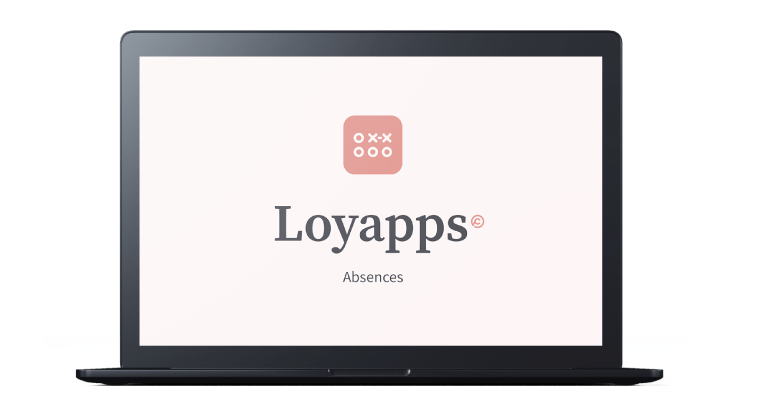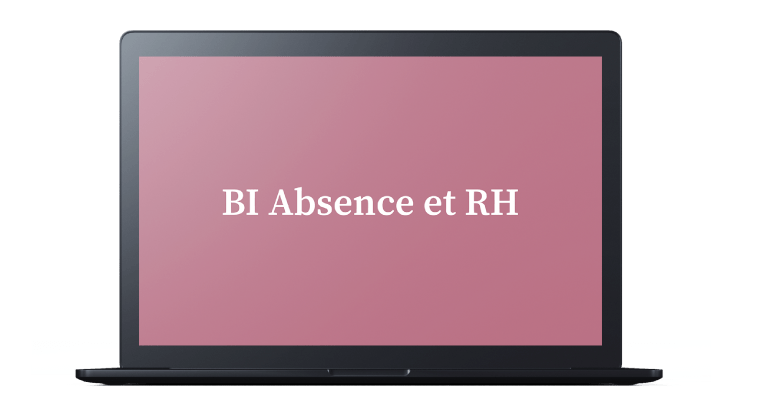
Fin des rapports de travail et libération de l’obligation de travailler
Lorsque le contrat de travail avec un collaborateur ou une collaboratrice est résilié, l’employeur peut, pour différentes raisons, vouloir renoncer à occuper le·la collaborateur·rice. Dans ce cas, il peut unilatéralement le·la libérer de l’obligation de travailler pendant le délai de résiliation. De manière concrète, quelles incidences cela a-t-il sur les vacances, les heures supplémentaires, etc.? Notre partenaire CJE, Avocats, Conseillers d’Entreprises passe en revue ces différentes questions pour vous.
1. Droits et obligations
En premier lieu, il convient de relever qu’à l’exception de l’obligation de travailler dont le·la collaborateur·rice est expressément libéré·e par l’employeur, l’ensemble des droits et obligations de l’employeur et du·de la collaborateur·rice subsistent.
2. Durée de la libération de l’obligation de travailler
Dans certaines situations, le collaborateur ou la collaboratrice peut bénéficier d’une protection contre le licenciement, qui diffère la date de fin des rapports de travail. Cela peut prolonger de plusieurs mois le contrat de travail. L’employeur confronté à une telle situation devra réfléchir s’il entend ou non libérer le·la collaborateur·rice pendant toute la durée du délai de congé, en cas de survenance d’un cas ayant une incidence sur le délai de congé. L’employeur peut se réserver le droit de révoquer la libération de l’obligation de travailler dans les cas où le délai de congé est prolongé.
3. Salaire
Le salaire dû par l’employeur doit être versé aux dates habituelles et doit être équivalent à celui que le collaborateur ou la collaboratrice aurait normalement reçu s’il ou elle avait travaillé durant la période de libération de l’obligation de travailler.
4. Indemnités «habituelles»
Lorsque le·la collaborateur·rice reçoit habituellement des indemnités (par exemple: travail de nuit, le dimanche et les jours fériés), l’employeur doit continuer à les lui verser, même s’il l’a libéré de l’obligation de travailler
5. Frais
Les frais auxquels a droit le·la collaborateur·rice, tels que les indemnités de repas pour frais de représentation, de déplacement, de nettoyage de vêtements de travail, etc. ne doivent plus être versés dans la mesure où ils couvrent des frais directement liés à l’exécution du travail et sont épargnés les jours non travaillés.
6. Véhicule d’entreprise
Lorsque le·la collaborateur·rice bénéficie d’un véhicule de fonction dont l’usage est uniquement professionnel, il·elle n’y a plus droit dès qu’il·elle est libéré de l’obligation de travailler.
En revanche, lorsque le·la collaborateur·rice peut faire un usage privé du véhicule de fonction, il·elle a le droit de le conserver jusqu’au terme des rapports de travail.
7. Matériel mis à disposition du·de la collaborateur·rice
L’employeur indiquera au collaborateur ou à la collaboratrice la date à laquelle le matériel mis à sa disposition (téléphone, ordinateur portable, etc.) doit lui être restitué. Lorsque le·la collaborateur·rice est définitivement libéré·e de l’obligation de travailler il n’y a, a priori, aucune raison d’attendre que le contrat de travail prenne effectivement fin pour lui demander de restituer le matériel.
8. Vacances
L’employeur peut considérer que le solde de vacances du·de la collaborateur·rice est réputé pris pendant le délai de congé pendant lequel il·elle est libéré·e de l’obligation de travailler, toutefois une certaine limite s’applique. On considère généralement que 1/3 de la durée du solde de vacances pendant laquelle le·la collaborateur·rice est libéré·e de l’obligation de travailler peuvent être réputé prises. Ainsi, si le délai de congé est de trois mois et que le·la collaborateur·rice a un solde de vacances 21 jours, on pourra considérer que la totalité du solde de vacances est réputée pris pendant le délai de congé. En revanche, si le délai de congé est de deux mois, 7 jours de vacances devront être payés.
Dans un arrêt récent, le Tribunal fédéral a admis, au vu des circonstances du cas, la prise de 35.67 jours de vacances sur une période de libération de l’obligation de travailler de 75.46 jours (arrêt du Tribunal fédéral 4A_381/2020 du 22 octobre 2020).
9. Heures supplémentaires
Le cas des heures supplémentaires est différent de celui des vacances. Les heures supplémentaires ne peuvent être réputées compensées que si cela est formellement stipulé dans le contrat de travail; dans le cas inverse, elles devront être payées au collaborateur ou à la collaboratrice.
10. Nouvel emploi
L’ensemble des droits et obligations de l’employeur et du·de la collaborateur·rice subsistant, ce·cette dernier·ère ne peut pas commencer une nouvelle activité sans l’accord exprès de l’employeur, d’autant plus si par son nouvel emploi, il·elle pourrait violer son devoir de diligence et de fidélité.
Lorsque le·la collaborateur·rice commence une nouvelle activité pendant le délai de congé en étant libéré de l’obligation de travailler, l’employeur est en droit de déduire du salaire qu’il doit au·à la collaborateur·rice ce qu’il a gagné par sa nouvelle activité.
11. Incapacité de travail
Lorsque c’est le collaborateur ou la collaboratrice qui résilié le contrat de travail, une éventuelle incapacité de travail, maladie, accident, grossesse, etc. n’a aucune influence sur la date de fin des rapports de travail, y compris en cas de libération de l’obligation de travailler durant le délai de congé.
En revanche, si c’est l’employeur qui a résilié le contrat de travail, le·la collaborateur·rice bénéficie des protections habituelles conformément à la durée effective de l’incapacité, mais limitées à 30 jours pendant la première année d’activité, 90 jours de la deuxième à la cinquième année d’activité et 180 jours dès la sixième année d’activité.
12. Congé maternité
Lorsque c’est la collaboratrice qui résilié le contrat de travail, une éventuelle grossesse ou un congé maternité n’a pas d’influence sur la date de fin des rapports de travail, y compris en cas de libération de l’obligation de travailler.
En revanche, si c’est l’employeur qui a résilié le contrat de travail, le délai de congé de la collaboratrice libérée de l’obligation de travailler est suspendu pendant toute la durée de la grossesse et pendant les 16 semaines qui suivent; il ne recommence à courir que le premier jour de la 17ème semaine qui suit l’accouchement.
13. Congé paternité
Lorsque c’est le collaborateur qui résilié le contrat de travail, un éventuel congé paternité n’a pas d’influence sur la date de fin des rapports de travail, y compris en cas de libération de l’obligation de travailler. En revanche, si c’est l’employeur qui a résilié le contrat de travail, le délai de congé du collaborateur libéré de l’obligation de travailler est prolongé du nombre de jours de congés qui n’ont pas été pris.
14. Congé de courte durée pour les proches aidants
Le congé de courte durée pour les proches aidants (au maximum 3 jours par cas et 10 jours par année) n’a pas d’incidence sur la date de fin des rapports de travail.
15. Congé pour prise en charge d’un enfant gravement atteint dans sa santé en raison d’une maladie ou d’un accident
Lorsque c’est le collaborateur ou la collaboratrice qui résilie le contrat de travail, un congé de prise en charge d’un enfant gravement atteint dans sa santé n’a pas d’influence sur la date de fin des rapports de travail, y compris en cas de libération de l’obligation de travailler.
Le collaborateur ou la collaboratrice licenciée par l’employeur et libérée de l’obligation de travailler a droit à un congé de 14 semaines pour la prise en charge d’un enfant gravement atteint dans sa santé en raison d’une maladie ou d’un accident; il·elle bénéficie d’une protection contre le licenciement d’une durée de six mois à compter du jour pour lequel la première indemnité a été versée, qui prolonge d’autant la durée du contrat de travail.
Remarque finale
- Le·la collaborateur·rice ne peut bénéficier de protection contre le licenciement qu’après la fin du temps d’essai.
- Lorsque le collaborateur ou la collaboratrice bénéficie d’une cause de protection contre le licenciement, les samedis, dimanches et jours fériés officiels sont inclus dans le calcul.
- Afin d’éviter tout malentendu qui pourrait générer un différent, il est conseillé de convenir par écrit des règles qui régissent les relations entre l’employeur et le·la collaborateur·rice en cas de libération de l’obligation de travailler pendant le délai de congé.
Ce contenu a été rédigé par notre partenaire CJE, Avocats, Conseillers d’Entreprises.

















